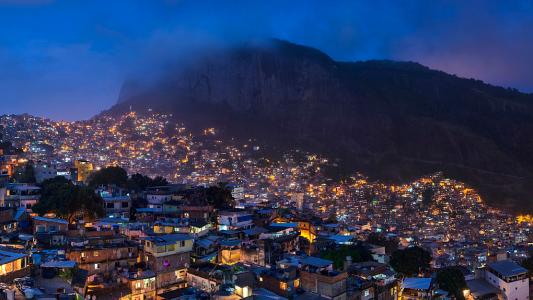What comes to mind when you think of so-called “slum” cities? Poverty? Crime? Hopelessness?
Jody King, a tour guide and English teacher in one of South America’s largest slum cities, would take issue with that. As he explains in the first episode of our new series about developing world, “There is a misconception about the favela. The media portrays the favela and the drug traffickers and the violence here the way they do because it makes good storylines.” Jody says there’s another side of the story that many people ignore.
“There is a misconception about the favela. The media portrays the favela and the drug traffickers and the violence here the way they do because it makes good storylines.”
When our team visited Rocinha, we discovered a community that’s undergone an amazing transformation led by its more than 70,000 inhabitants. Residents have turned wood shacks with no electricity or running water into an intricate labyrinth of concrete houses with modern utilities.
Things aren’t perfect in Rocinha. Gangs and their associated violence are still a fact of daily life. But so is a robust economy made up of entrepreneurs, DJs, hairdressers, tour guides, radio hosts, construction workers, computer coders, and many others. They are proud, hopeful, ambitious, and determined to build a better life for themselves and each other.
